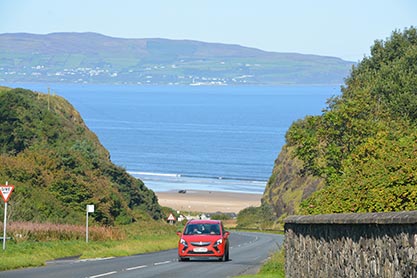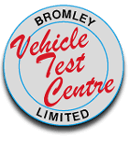
For over a year, many of us would have left our vehicles parked and unutilised, if not driven solely for those short, essential journeys to the local supermarket. However, with restrictions easing month by month, the likely return of staycations are drawing closer, allowing us to utilise our cars once more! Whilst excitement is most likely brewing, it is worth taking a step back and preparing your vehicle for its return to the road by performing a handful of (possibly required!) health checks.
Tyre pressure
Tyre pressure is crucial for safety whilst on the road. With incorrect pressure, your braking could become less effective, as could your grip on the road whilst steering. A common reason for tyre deflation could be a puncture, whilst another (lesser known) cause could be a vast change in weather temperatures – something that your vehicle could have endured over the last year with the blistering summers and snowy winters! Check the pressure of your tyre with a pressure gauge and, if low, top it at your local petrol garage, or with your vehicles accompanying pump (if applicable).
Oil level
The duty of an accurate oil level is to ensure that your engine remains lubricated, preventing breakdowns or faults from occurring. Under your bonnet, your dipstick can be located towards the left-hand side, but you can always refer to your vehicles handbook if you are unsure of its location.
To check your oil level, ensure your car has been switched off for at least an hour and then lift your bonnet, unscrew and remove the dipstick. Wipe it down with a tissue or cloth, dip it back in and once again
remove it once again. The oil should leave a mark on the dipstick, showing you how much is remaining. This should be between the minimum and maximum points. Any less, you will need to top it up, but be careful not to fill beyond the maximum marking as this could also cause damage to the engine.
Engine coolant
Engine coolant works to keep the engine of your vehicle healthy by regulating its temperature. You should assess the level of yours and top it up if necessary. After your car has been switched off for at least an hour and the bonnet has been allowed to cool, take a look inside for the engine coolant reservoir. A minimum mark should be visible, and if you can see that the liquid is approaching this line or is already beneath it, you should top this up until you approach the maximum mark.
Lights
It doesn’t take a rocket scientist to know that working lights on your car are extremely important factors of driving in darker hours or harsh weather conditions. From indicators and brake lights to headlights and reverse lights, a safe vehicle should have each working correctly. To check that this is the case, you will need someone to help you. Request for them to stand infront and behind your vehicle as you test the lights across your vehicle. It can be simple to change a bulb yourself, but your local mechanic will be on hand to complete this job in a short, effective time.
Windscreen wipers screenwash
With our cars having been left unutilised, it’s possible that throughout the vast changes in weather, grit and debris has worked its way onto our windscreens and wipers. Before you test these, take a moment to wipe them down with a damp cloth. You should also inspect for any chips or cracks on the windscreen as, even if they don’t look damaging now, they can quicky turn into a hazardous risk. You will also want to ensure that you have enough screenwash so that your vision of the road does not become impaired once you set off. The ability to keep both your front and rear windscreens clear is vital to a safe drive.
Check your fuel
If your car relies on fuel, you should check the amount left in the tank before taking to the road. It may be that it was requiring a top-up when you last parked it, but the fact has since slipped your mind in amongst the other news floating around the globe! We would hate for you to have to call a breakdown service out whilst travelling to your staycation, so make sure you have a full tank!
It also wouldn’t be uncommon to reach your local petrol station and have the same panic had many-a-time by multiple drivers over which fuel your car requires. Take a moment to look inside your fuel cap before reaching a garage to refresh your memory, preventing you from filling up incorrectly and risking damage to your vehicle, as well as prolonging your journey.
Checking these factors over can be enough to provide you with a smooth and safe journey, but if you feel as though your car require a professional assessment, get in touch with our team at Bromley Vehicle Test Centre who will be happy to perform safety checks to each aspect of your vehicle before you set off on your UK staycation. Give us a call on 020 8460 6666 today.
